
Recently Viewed
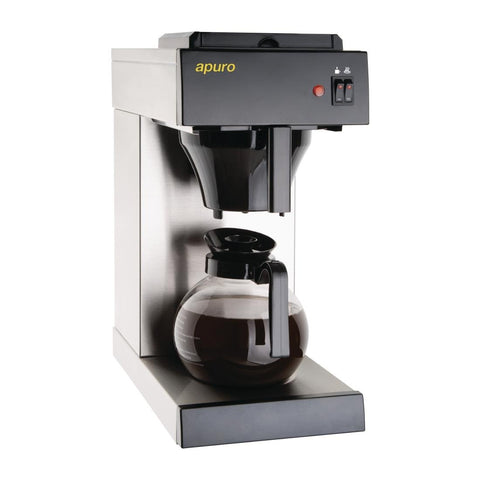

 Apuro Manual Fill Filter Coffee Machine - CT815-A
Apuro Manual Fill Filter Coffee Machine - CT815-A
215(W) x 460(H) x 400(D)mm
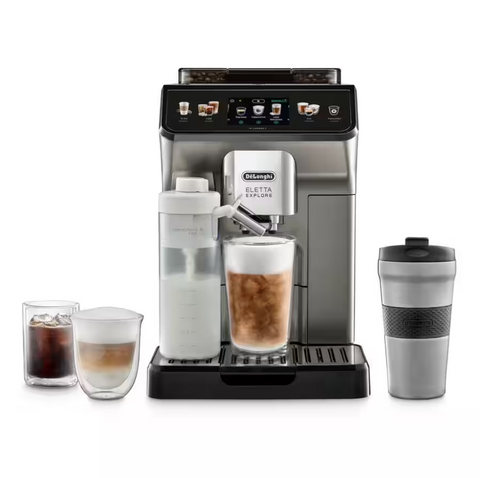

 DeLonghi Eletta Explore Titanium ECAM450.86.T
DeLonghi Eletta Explore Titanium ECAM450.86.T
260(W) x 450(D) x 385(H)mm
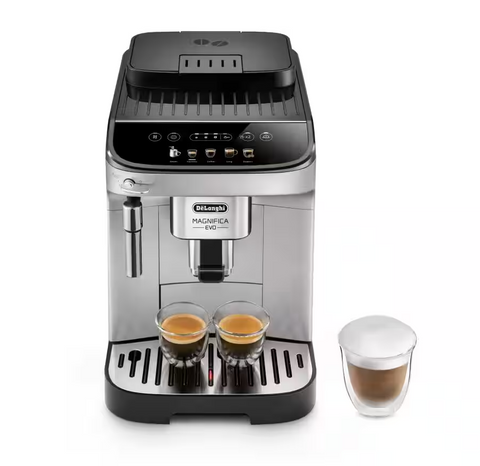

 DeLonghi Magnifica Evo Silver Black ECAM290.31.SB
DeLonghi Magnifica Evo Silver Black ECAM290.31.SB
240(W) x 440(D) x 360(H)mm
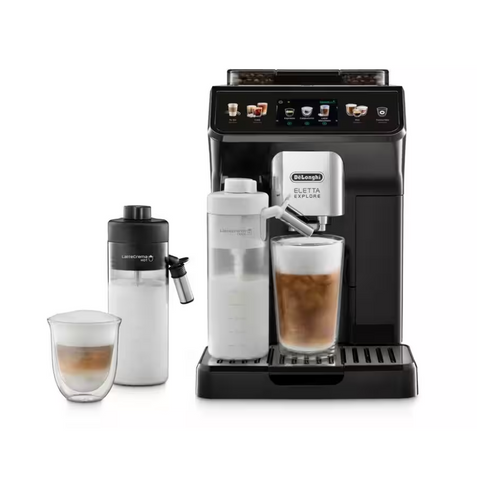

 DeLonghi Eletta Explore Grey ECAM450.55.G
DeLonghi Eletta Explore Grey ECAM450.55.G
260(W) x 450(D) x 385(H)mm
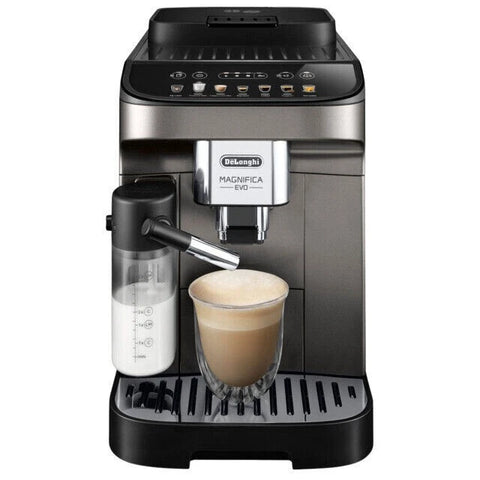

 Delonghi Magnifica Evo Coffee Machine ECAM290.83.TB
Delonghi Magnifica Evo Coffee Machine ECAM290.83.TB
240(W) x 440(D) x 360(H)mm
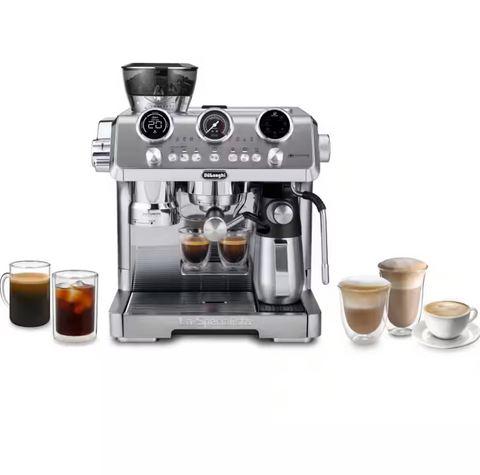

 DeLonghi La Specialista Maestro Cold Brew EC9885.M
DeLonghi La Specialista Maestro Cold Brew EC9885.M
419(W) x 368(D) x 465(H)mm
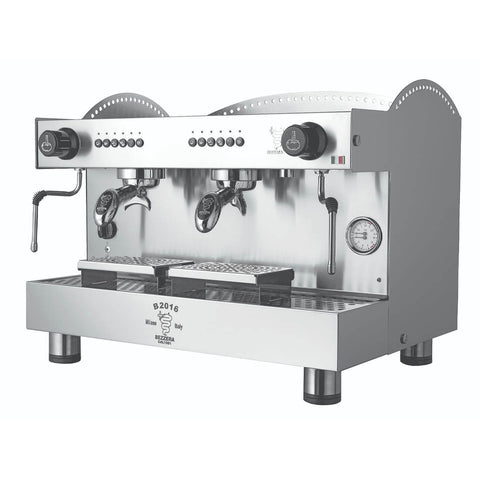
 Bezzera Bezzera Professional Espresso Machine BZB2016S2DE
Bezzera Bezzera Professional Espresso Machine BZB2016S2DE
750(W) x 550(D) x 515(H)mm

 Saeco Aulika Evo Focus Bean to Cup Coffee Machine Aulika-Evo-Focus
Saeco Aulika Evo Focus Bean to Cup Coffee Machine Aulika-Evo-Focus
334(W) x 452(D) x 574(H)mm
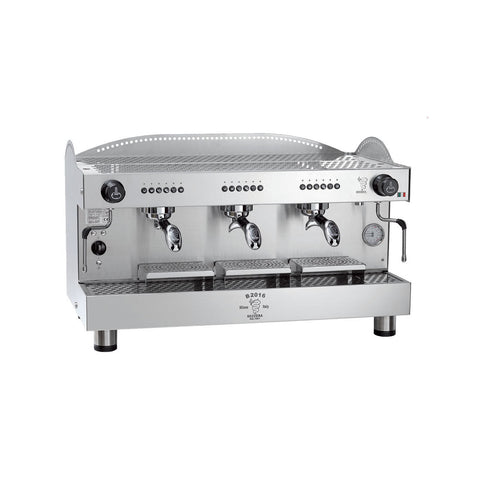
 Bezzera Bezzera Professional Espresso Machine BZB2016S3DE
Bezzera Bezzera Professional Espresso Machine BZB2016S3DE
960(W) x 550(D) x 515(H)mm
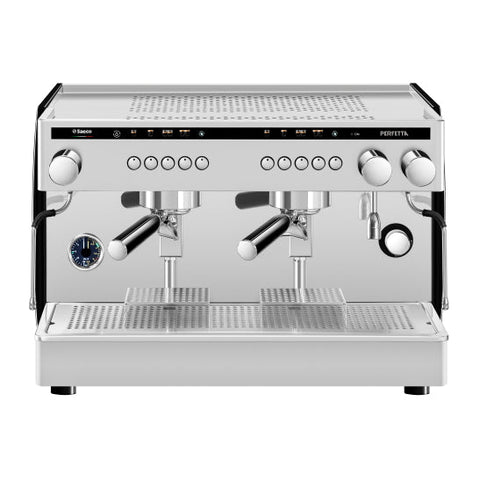

 Saeco Perfetta Saeco-Perfetta
Saeco Perfetta Saeco-Perfetta
730(W) x 520(D) x 470(H)mm


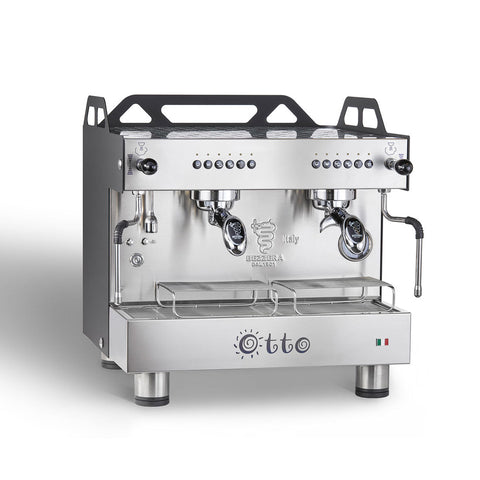

 Bezzera Otto Black Compact 2 Group Espresso Machine BZOTTOCDE2IB1
Bezzera Otto Black Compact 2 Group Espresso Machine BZOTTOCDE2IB1
500(W) x 495(D) x 535(H)mm
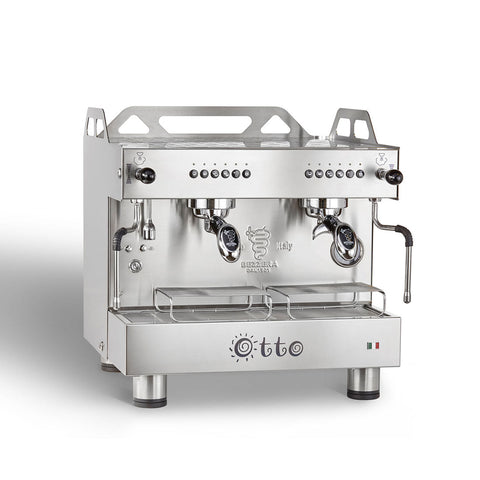

 Bezzera Otto Silver Compact 2 Group Espresso Machine BZOTTOCDE2IS1
Bezzera Otto Silver Compact 2 Group Espresso Machine BZOTTOCDE2IS1
500(W) x 495(D) x 535(H)mm
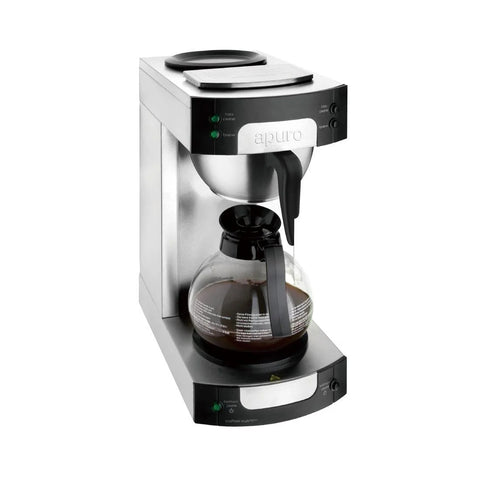

 Apuro Filter Coffee Maker - CW305-A
Apuro Filter Coffee Maker - CW305-A
205(W) x 435(H) x 205(D)mm


 Victoria Arduino Mythos MY75 Grinder Matte Black
Victoria Arduino Mythos MY75 Grinder Matte Black
200(W) x 400(D) x 480(H)mm

 Expobar Zircon High Cup Compact 2 Group Stainless
Expobar Zircon High Cup Compact 2 Group Stainless
460(W) x 590(D) x 520(H)mm
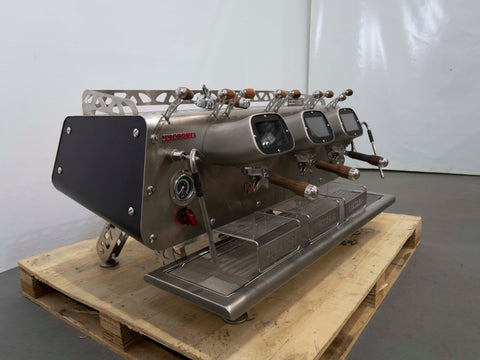

 Bezzera Victoria De Brewing Profile 3 Group Coffee Machine - 811542
Bezzera Victoria De Brewing Profile 3 Group Coffee Machine - 811542
1020W x 550D x 660Hmm
1020W x 660D x 550Hmm
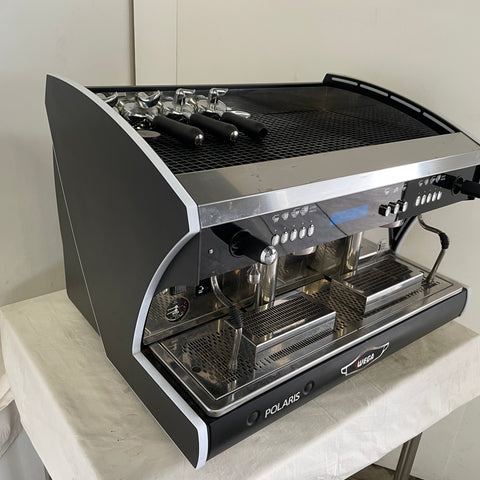

 Wega EVD./2-PR 2 Group Coffee Machine - 789056
Wega EVD./2-PR 2 Group Coffee Machine - 789056
750W x 535D x 560Hmm
750W x 560D x 535Hmm
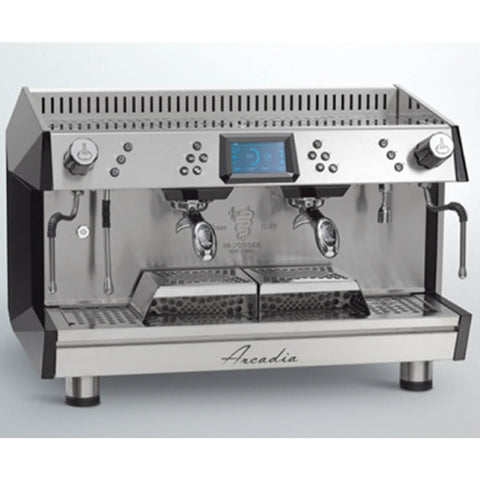

 2NDs: ARCADIA Professional Espresso coffee machine - ARCADIA-G2DP
2NDs: ARCADIA Professional Espresso coffee machine - ARCADIA-G2DP
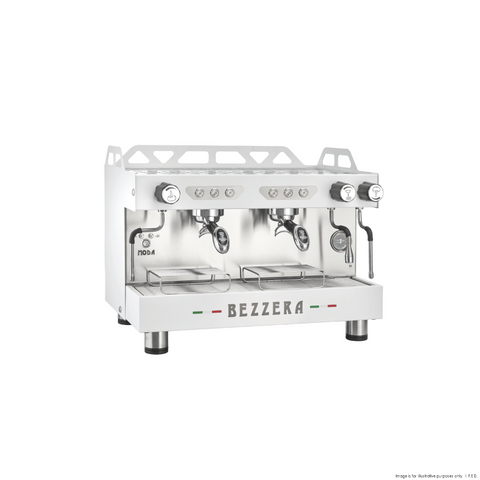

 Bezzera Bezzera Moda De 2 Group Espresso Machine White MODADE2W
Bezzera Bezzera Moda De 2 Group Espresso Machine White MODADE2W
667(W) x 550(D) x 520(H)mm
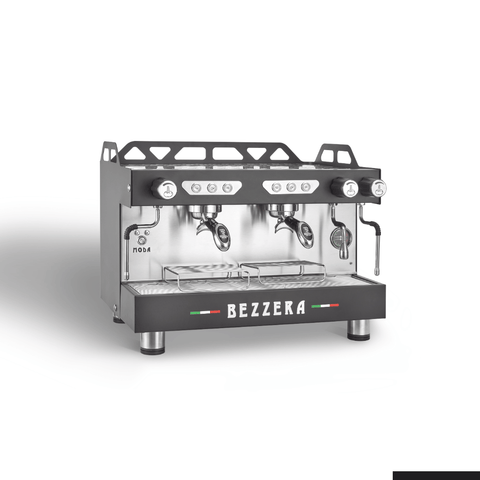

 Bezzera Bezzera Moda De 2 Group Espresso Machine Black MODADE2B
Bezzera Bezzera Moda De 2 Group Espresso Machine Black MODADE2B
667(W) x 550(D) x 520(H)mm

 La Pavoni Expo
La Pavoni Expo
200(W) x 290(D) x 350(H)mm

 La Pavoni Cellini EVO
La Pavoni Cellini EVO
300(W) x 430(D) x 410(H)mm

 La Pavoni Cellini Classic
La Pavoni Cellini Classic
300(W) x 430(D) x 395(H)mm
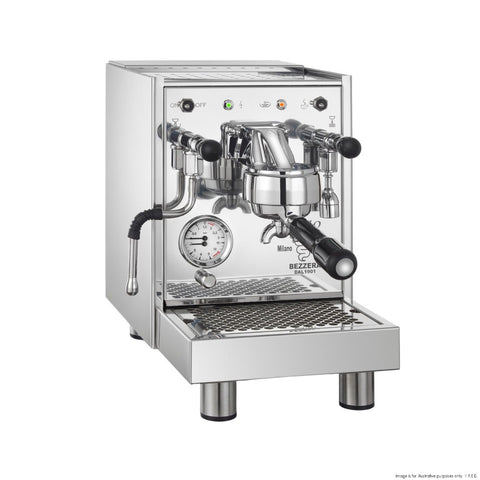

 Bezzera Semi Professional Espresso Coffee Machine BZ10
Bezzera Semi Professional Espresso Coffee Machine BZ10
250(W) x 380(D) x 430(H)mm

 Bezzera 3L Red 2-Group Professional Espresso Machine BZB2016R2DE
Bezzera 3L Red 2-Group Professional Espresso Machine BZB2016R2DE
750(W) x 550(D) x 515(H)mm

 Bezzera 3L Black 3-Group Professional Espresso Machine BZB2016B3DE
Bezzera 3L Black 3-Group Professional Espresso Machine BZB2016B3DE
960(W) x 550(D) x 515(H)mm
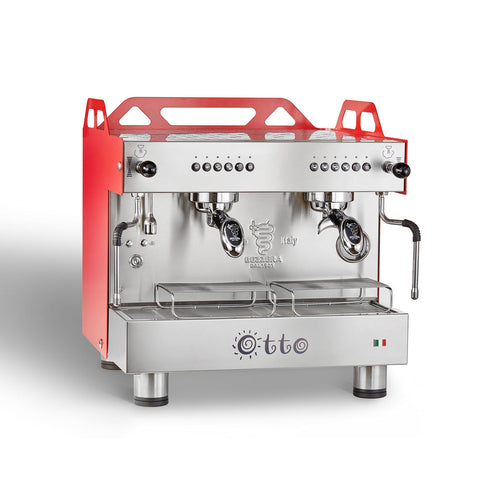

 Bezzera Otto Red Compact 2 Group Espresso Machine BZOTTOCDE2IR1
Bezzera Otto Red Compact 2 Group Espresso Machine BZOTTOCDE2IR1
500(W) x 495(D) x 535(H)mm
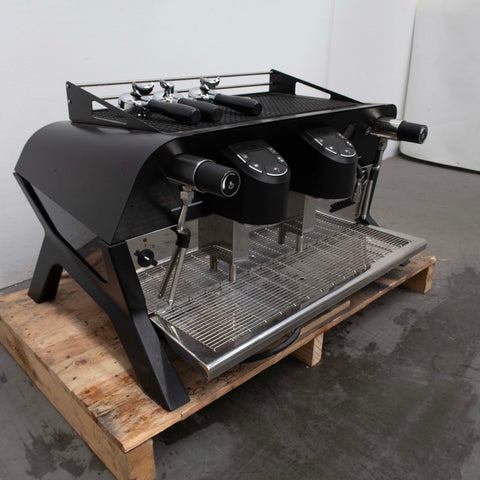

 Sanremo F18SB 2 Group Volumetric Coffee Machine - 840410
Sanremo F18SB 2 Group Volumetric Coffee Machine - 840410
920W x 650D x 520Hmm
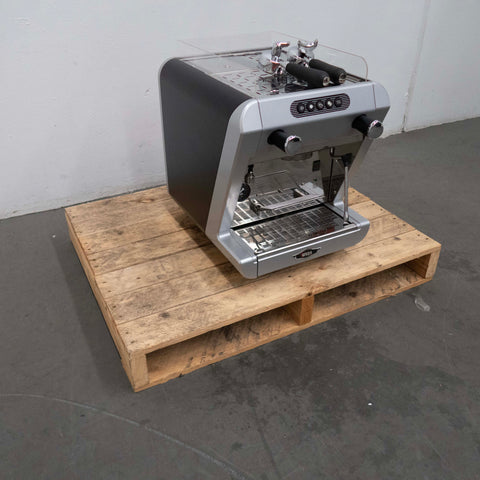

 Wega IO EVD 1 1 Group Volumetric Coffee Machine - 812132
Wega IO EVD 1 1 Group Volumetric Coffee Machine - 812132
400W x 540D x 530Hmm
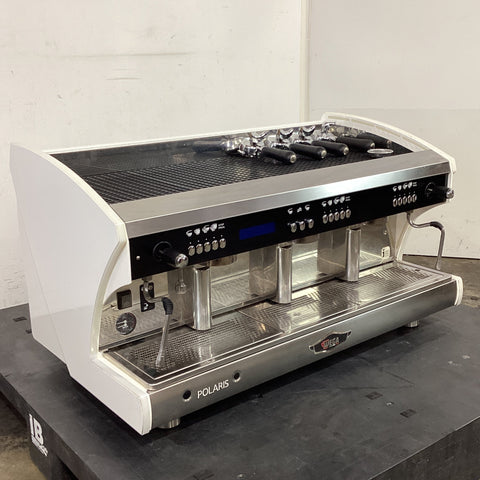

 Wega POLARIS EVD./3-PR 3 Group Coffee Machine - 834127
Wega POLARIS EVD./3-PR 3 Group Coffee Machine - 834127
985W x 560D x 530Hmm
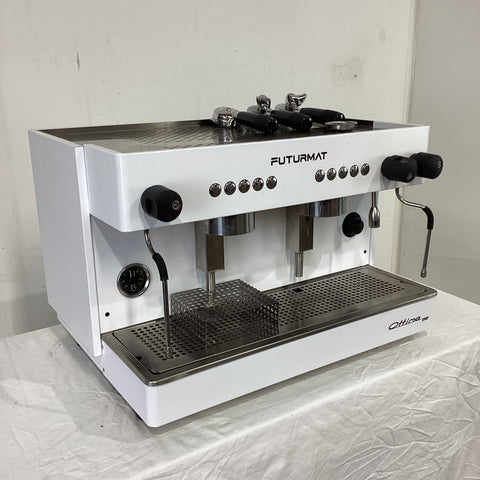

 Futurmat MTF092HT 2 Group Coffee Machine - 876273
Futurmat MTF092HT 2 Group Coffee Machine - 876273
700W x 510D x 460Hmm
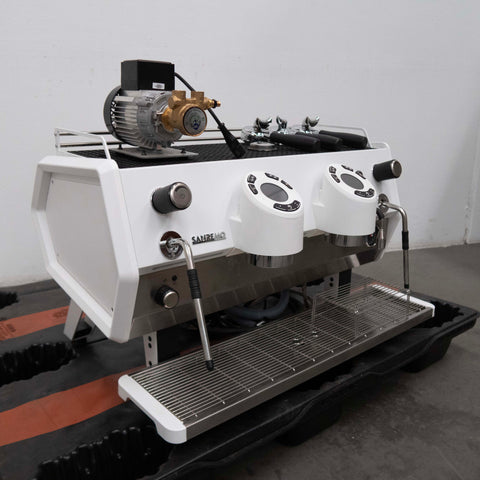

 Sanremo D8 Pro Tall 2 Group Coffee Machine - 881066
Sanremo D8 Pro Tall 2 Group Coffee Machine - 881066
815W x 600D x 510Hmm
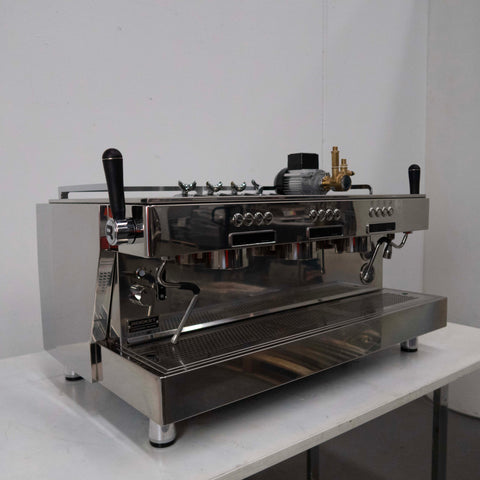

 Rocket Milano R9 3 Group Coffee Machine - 830547
Rocket Milano R9 3 Group Coffee Machine - 830547
960W x 600D x 500Hmm
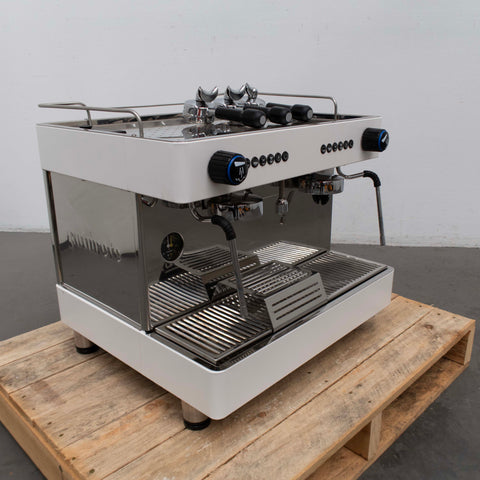

 Futurete Horizont Compact 2 Group Coffee Machine - 849464
Futurete Horizont Compact 2 Group Coffee Machine - 849464
565W x 500D x 510Hmm
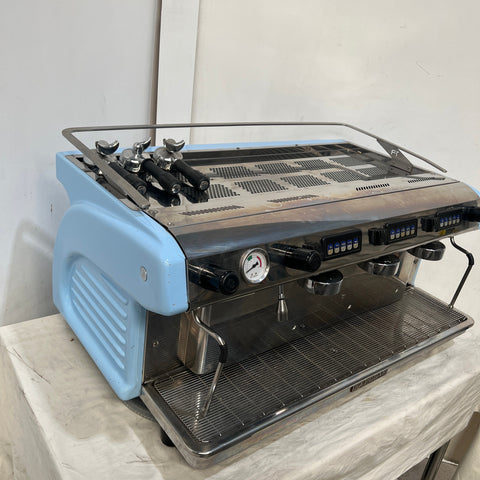

 Expobar Ruggero 3 Group Coffee Machine - 796119
Expobar Ruggero 3 Group Coffee Machine - 796119
1060W x 650D x 540Hmm
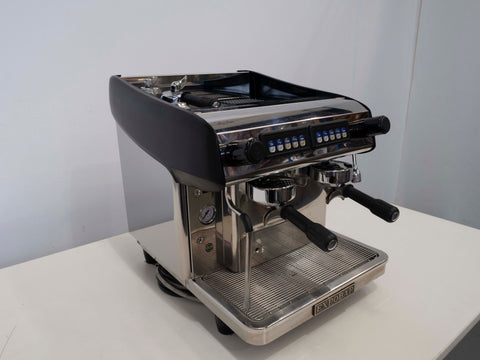

 Expobar MI-C-2GR 2 Group Coffee Machine - 780512
Expobar MI-C-2GR 2 Group Coffee Machine - 780512
450W x 550D x 510Hmm
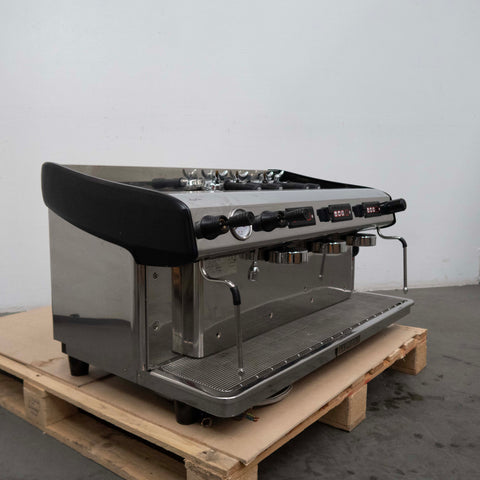

 Expobar Megacrem 3 Group Coffee Machine - 860224
Expobar Megacrem 3 Group Coffee Machine - 860224
950W x 580D x 500Hmm
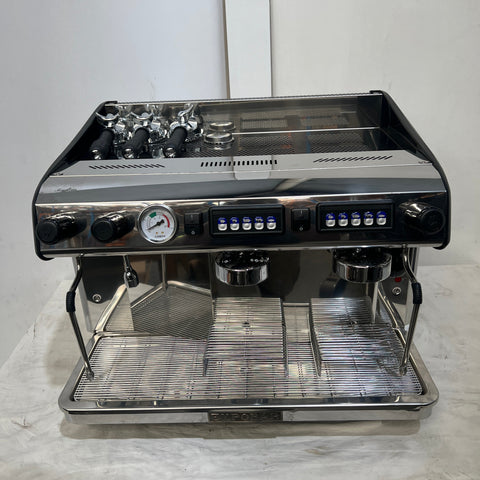

 Expobar Megacrem 2 Group Coffee Machine - 900393
Expobar Megacrem 2 Group Coffee Machine - 900393
700W x 580D x 510Hmm
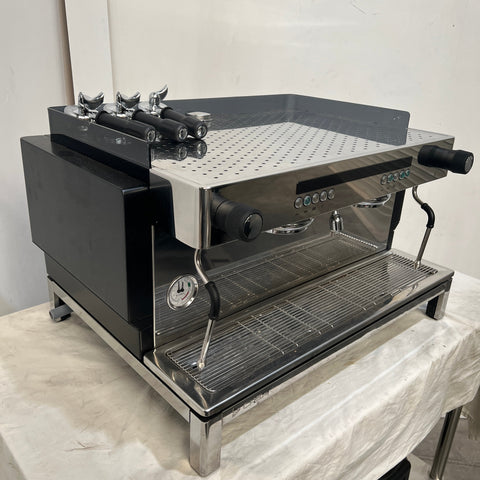

 Crem EBEE-DA1B-22AR 2 Group Coffee Machine - 852692
Crem EBEE-DA1B-22AR 2 Group Coffee Machine - 852692
770W x 570D x 470Hmm
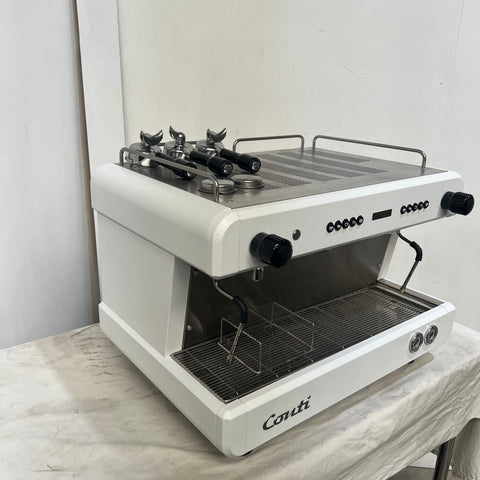

 Conti CC202-TC 2 Group Coffee Machine - 875345
Conti CC202-TC 2 Group Coffee Machine - 875345
704W x 512D x 500Hmm
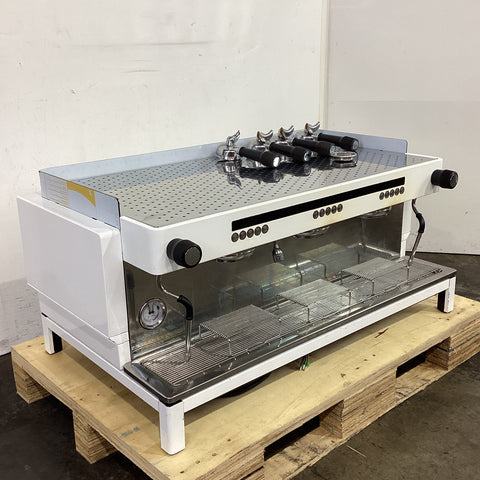

 Crem ECEF-FA1B-22AR 3 Group Coffee Machine - 783332
Crem ECEF-FA1B-22AR 3 Group Coffee Machine - 783332
1000W x 600D x 480Hmm


 XLVI Steamhammer Electronic 3 Group Coffee Machine - 827923
XLVI Steamhammer Electronic 3 Group Coffee Machine - 827923
970W x 600D x 600Hmm
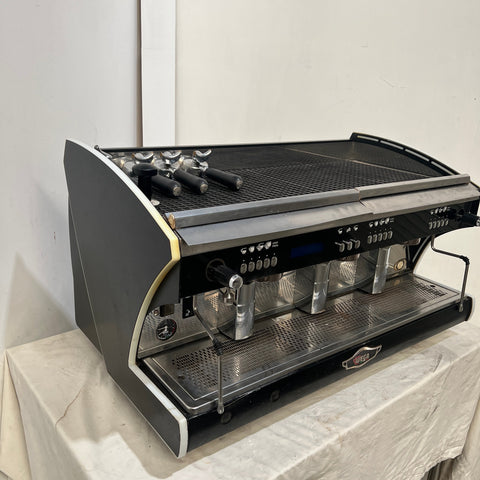

 Wega EVD./3-PR 3 Group Coffee Machine - 807494
Wega EVD./3-PR 3 Group Coffee Machine - 807494
985W x 560D x 530Hmm
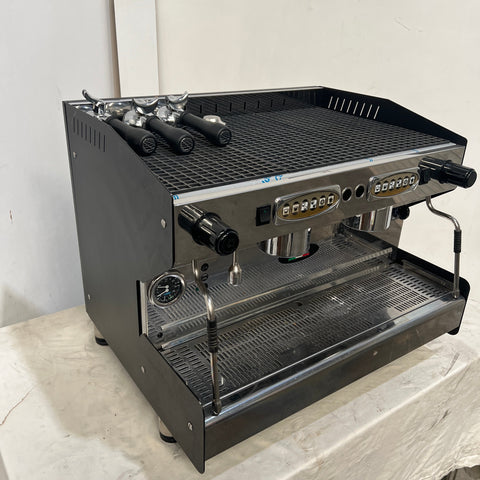

 SAB Jolly Prestige 2 Group Coffee Machine - 799403
SAB Jolly Prestige 2 Group Coffee Machine - 799403
665W x 540D x 510Hmm
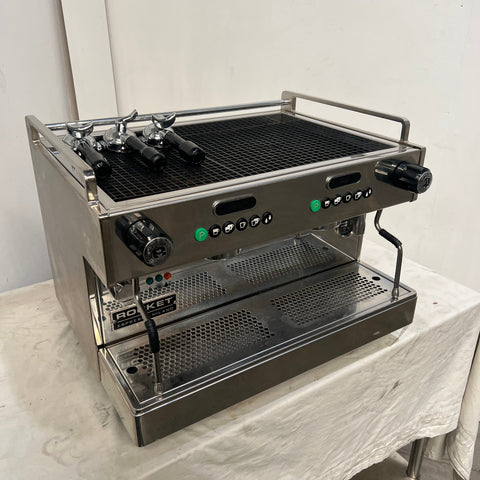

 Rocket Boxer 2 Group Coffee Machine - 756659
Rocket Boxer 2 Group Coffee Machine - 756659
625W x 490D x 470Hmm
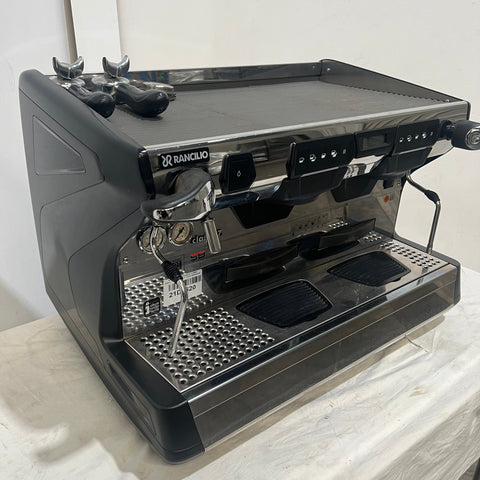

 Rancilio Classe 7 USB 2 Group Coffee Machine - 737582
Rancilio Classe 7 USB 2 Group Coffee Machine - 737582
770W x 540D x 770Hmm

 Wega Atlas Compact EVD 2 Group Espresso Coffee Machine Black
Wega Atlas Compact EVD 2 Group Espresso Coffee Machine Black
530(W) x 530(D) x 520(H)mm
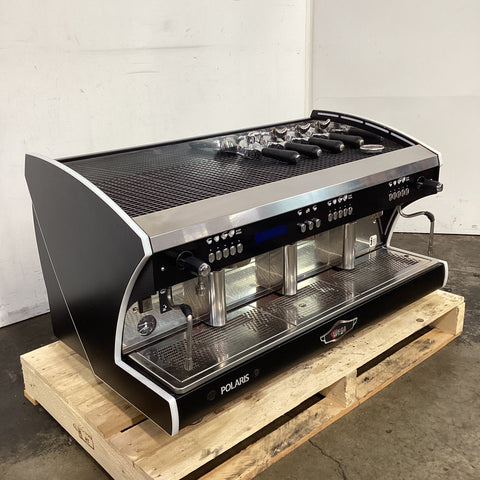

 Wega POLARIS EVD./3-PR 3 Group Coffee Machine - 859123
Wega POLARIS EVD./3-PR 3 Group Coffee Machine - 859123
985W x 560D x 530Hmm
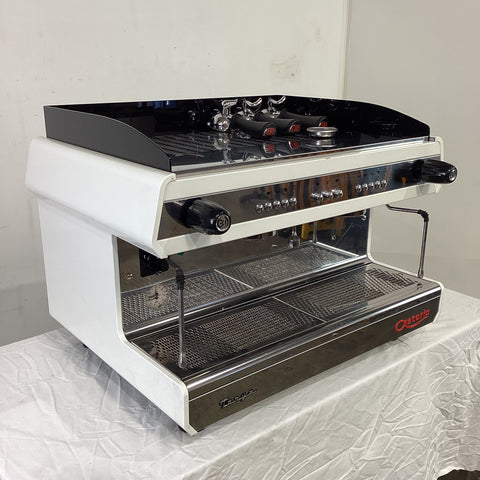

 Astoria SAE./2-EC 2 Group Coffee Machine - 873900
Astoria SAE./2-EC 2 Group Coffee Machine - 873900
715W x 560D x 520Hmm
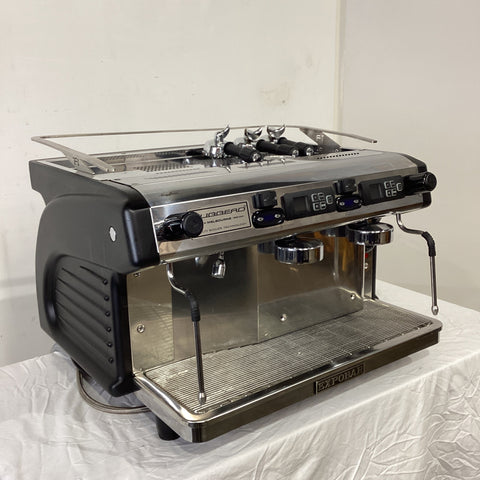

 Expobar MA-C-2GR Coffee Machine - 842687
Expobar MA-C-2GR Coffee Machine - 842687
770W x 630D x 540Hmm
Whether you’re looking for a commercial coffee machine for a cafe, restaurant, or bar or want something for the office, Restaurant Equipment Online has what you need. Our broad selection includes budget-friendly models to high-capacity coffee machines for commercial applications.
Discover the range, including everything from filter coffee machines to professional espresso machines from the top brands in the coffee industry and create the perfect cup every time.
Commercial coffee machines are capable of delivering high volumes of coffee and are specially designed for the hospitality industry. They’re typically much larger, can hold more water and can froth higher volumes of milk than domestic models. Some models also come with multiple group heads for higher coffee turnover.
Commercial coffee machines use pressure and hot water to create the perfect cup of espresso. You start by loading your coffee grounds into the portafilter and tamping them down. The portafilter is then locked into place, and water is forced through the grounds, passing through the portafilter into your cup or glass.
There are multiple models of coffee machines, each operating slightly differently. Depending on the needs of your establishment, you can consider choosing from automatic, semi-automatic or manual models. Many of the larger options also come with a milk-frothing wand, allowing you to heat milk and create the perfect amount of foam to make everything from cappuccinos to lattes.
The lifespan of your coffee machine can vary depending on the model, how frequently it’s used and how well you maintain it. With proper care and maintenance, they can last up to 10 years.
As with any appliance that uses water, we recommend only using filtered water. This is especially important if you’re located outside metro areas and have hard water, as this can increase the amount of mineral buildup in your machine. Not only does this impact the flavour of your coffee over time, but it also results in more cleaning and, in many cases, voids your warranty.
Water filtration systems like those from Coast are a good investment for everything from your coffee machine to ice machines.
We stock a variety of models, including automatic, semi-automatic and manual coffee machines. If you’re looking for a more simple and intuitive model for an office setting, we also offer machines for drip coffee, complete with pot warmers as well as compact espresso machines.
Super-automatic models streamline and manage the entire brewing process. Aside from filling and tamping the coffee, all you need to do is press a button. The machine will then pass through a set volume of water, stopping the flow when it’s done.
Semi-automatic models don’t have an automatic shutoff, allowing baristas to choose how long or short the shot should be. This puts more control in the users hands but also requires more supervision.
When you order a coffee machine, you’ll get a user manual included. This will typically include information regarding common issues that you can easily troubleshoot yourself. If you have any issues that you can’t fix, you may need to contact the manufacturer for more information.
Choosing the best commercial coffee maker will depend on your needs and how you want to use it. One of the first considerations is the capacity you’ll need. The volume of coffee you need to produce to meet demand will vary depending on whether you’re a small or large business, and the water capacity will need to match accordingly.
We stock a range of sizes, with models that have boilers that can hold anywhere from 2 to 15 litres of water. Getting the right capacity means you can reduce the frequency with which you need to refill it.
To increase the number of coffees you can make at one time, you may also want to consider models with multiple group heads. We stock multiple models, ranging from a single group head to double and triple group head options.
Along with choosing the right machine, pairing it with the perfect accessories can be the key difference in achieving that perfectly brewed cup of coffee. To achieve the perfect texture, coffee grinders give you greater control over how finely milled your coffee is. You may also want to consider jug and cup rinsers, which allow you to rinse your milk jug more quickly between steaming sessions. This is especially important when you’re switching between dairy milk and plant-based milk.
Cleaning your commercial coffee machine regularly not only ensures you’re delivering exceptionally good coffee, but also helps to increase your machine’s lifespan. There are some cleaning practices you need to complete daily, while others are maintenance jobs you’ll want to do every one to three months.
Each day, you should clean the steam wand and clear it out with hot water to remove any residue. You should also disassemble the portafilter and wash the baskets and empty the drip tray.
Weekly maintenance should include flushing the machine fully. Using a specialty cleaning solution will help break down any oils left over from the coffee and keep your machine running more smoothly.
Each month, wash and sterilise your portafilters and baskets with a cleaning solution to remove any stubborn residue and oil. If you’re using filtered water, you may not notice mineral build-up as often, but ensure you’re checking for scale and use a descaling solution if needed.
You should also maintain the hardware, checking for any wear and tear. If anything is wearing down, you may need to get your machine serviced, which will save you in the long run by reducing the chances of anything fully breaking.
Commercial coffee machines, despite keeping water hot consistently, are generally low-cost to run. They’re more efficient than boiling a kettle for coffee in the workplace, and if you’re in a commercial setting, they’re also more efficient at keeping a steady flow of fresh, delicious coffee.
Depending on the model you choose, the hours it runs for and how many Watts it requires to run, your commercial coffee machine will typically range from a few dollars up to around $20 per day.